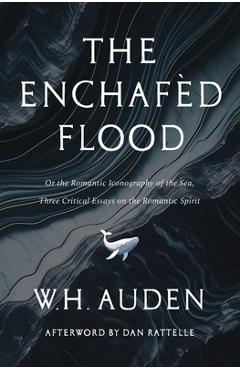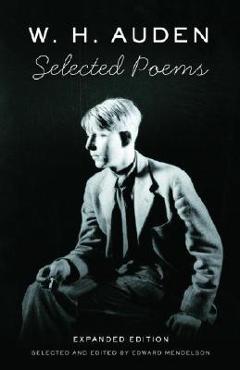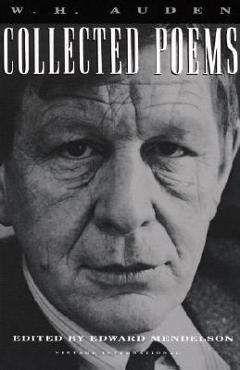The Enchafèd Flood: Three Critical Essays on the Romantic Spirit - W. H. Auden

Detalii The Enchafèd Flood: Three Critical
libris.ro
74.4 Lei
82.67 Lei
Literary Criticism
W.H. Auden
The Enchafèd Flood: Three Critical - Disponibil la libris.ro
Pe YEO găsești The Enchafèd Flood: Three Critical de la W.H. Auden, în categoria Literary Criticism.
Indiferent de nevoile tale, The Enchafèd Flood: Three Critical Essays on the Romantic Spirit - W. H. Auden din categoria Literary Criticism îți poate aduce un echilibru perfect între calitate și preț, cu avantaje practice și moderne.
Preț: 74.4 Lei
Caracteristicile produsului The Enchafèd Flood: Three Critical
- Brand: W.H. Auden
- Categoria: Literary Criticism
- Magazin: libris.ro
- Ultima actualizare: 28-10-2025 01:22:05
Comandă The Enchafèd Flood: Three Critical Online, Simplu și Rapid
Prin intermediul platformei YEO, poți comanda The Enchafèd Flood: Three Critical de la libris.ro rapid și în siguranță. Bucură-te de o experiență de cumpărături online optimizată și descoperă cele mai bune oferte actualizate constant.
Descriere magazin:
Put simply, The Enchafèd Flood is an attempt to understand the nature of Romanticism through an examination of its treatment of a single theme, the sea. Auden focuses his Christian existentialist eye especially on Herman Melville\'s Moby-Dick , though he draws widely from works as various as the Bible and Baudelaire, to probe the Romantic proclivity to seek escape from responsibility and community. Beginning with an exploration of Book V of Wordsworth\'s The Prelude , in which the speaker has a dream after falling asleep while reading Don Quixote , Cervantes\' tale of the Errant Knight, Auden notes three pairs of symbols that will guide his subsequent discussion: the wildernesses of the desert and the sea, both of which are places of freedom and solitude, but also loneliness and alienation; the stone of abstract geometry, and the shell of imagination or instinct, each of which offers the dreamer alternative routes of salvation from anxiety; and the double-natured hero, as seen in the exile Ishmael and the dedicated man Don Quixote. Ultimately, Auden draws on Kierkegaard\'s categories to lead readers through an interrogation of the three types of heroes-the aesthetic, ethical, and religious-found in literature. By com-paring the Romantic eras\'s heroes with those of Classical and Renaissance literature, Auden offers both his reading of Romanticism, and the artists of that age, as well as their swan song, for, as he notes: We live in a new age . . . Our temptations are not theirs. We are less likely to be tempted by solitude into Promethean pride: we are far more likely to become cowards in the face of the tyrant who would compel us to lie in the service of the False City.

Produse asemănătoare
Produse marca W.H. Auden

As I Walked Out One Evening: Songs, Ballads, Lullabies, Limericks, and Other Light Verse - W. H. Auden
![]() libris.ro
libris.ro
Actualizat in 28/10/2025
107.14 Lei

The Complete Works of W. H. Auden: Poems, Volume II: 1940-1973 - W. H. Auden
![]() libris.ro
libris.ro
Actualizat in 28/10/2025
381.48 Lei



